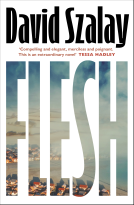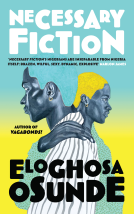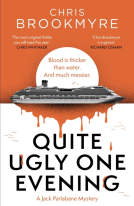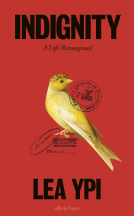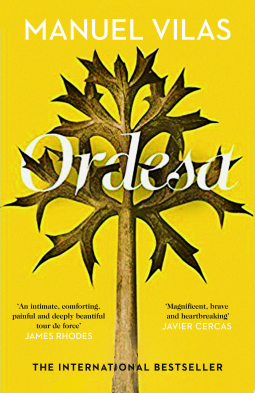
Ordesa
by Manuel Vilas
This title was previously available on NetGalley and is now archived.
Send NetGalley books directly to your Kindle or Kindle app
1
To read on a Kindle or Kindle app, please add kindle@netgalley.com as an approved email address to receive files in your Amazon account. Click here for step-by-step instructions.
2
Also find your Kindle email address within your Amazon account, and enter it here.
Pub Date 3 Dec 2020 | Archive Date 30 Nov 2020
Talking about this book? Use #Ordesa #NetGalley. More hashtag tips!
Description
Ordesa – a small Spanish town in the Pyrenees – is where our narrator was born, a place his father loved dearly, a place suffused with memories. Now, forty-six years later, he returns to the valley with his own children on a summer vacation. His parents are dead, his marriage has ended and he’s struggling to piece together the bits of himself.
Single and living in an apartment he hates, clinging to snatched moments of quality time with his apathetic children, newly sober and with his career on the wane, the ghosts of the narrator’s family besiege him, but also bring him hope. Out of despair, he writes this chronicle, this homage, this memoir of his family: grandparents whose photos were never taken, whose funerals were never attended, parents unable to show their love. Maybe the tragedy of life itself is not death, but truly realising the importance of family only once they’ve passed. Perhaps this trip to Ordesa can help him fall in love with life – his life – once more.
A masterwork of autofiction from Spanish literary icon Manuel Vilas, Ordesa is a deeply moving meditation on identity, nationality, family, loss and the passing of time.
Advance Praise
'Vilas has written a book that is soaked through with humanity. An intimate, comforting, painful and deeply beautiful tour de force. He is an enhancer of life' JAMES RHODES
'Ordesa is irresistible . . . Manuel Vilas has written something unforgettable' El Cultural (Spain)
Available Editions
| EDITION | Hardcover |
| ISBN | 9781786897312 |
| PRICE | £16.99 (GBP) |
Average rating from 11 members
Featured Reviews
Emotional, tense, gripping. It felt very ferrante-like. I love books that explore familial matters and that look at relationships that arent always perfect but have something to say. From the beginning i was hooked as i hadnt read something so different before. I really feel like the yellow theme from the beginning and the cover really solidify this book in my brain as something special.
A monologue of autofiction that somehow captured me though I suspect this is one of those books that you need to be in precisely the right mood for: it's gloomy and introspective, has a kind of aching melancholy of tone. In another mood, I might have been frustrated at another white, middle-class, middle-aged, unfaithful man pontificating pretty much on himself - just be aware, this could go either way! Having picked up the book at the right time, however, I liked the politicised consciousness as this thinks about capitalism, Spain's troubled twentieth-century history, life and death, the bonds and tribulations of family ties. Don't expect a story - this is too post-modern for that. All the same, I found the writing beguiling and was happy to follow the narrator's internal journeys.
 Paul F, Reviewer
Paul F, Reviewer
"It seemed to me the state of my soul was a blurry memory of something that had occurred in a place in northern Spain called Ordesa, a place full of mountains. And that memory was yellow, the color yellow spreading through the name Ordesa, and behind Ordesa was the figure of my father in the summer of 1969."
Ordesa by Manuel Vilas llegó was voted by critics in the annual El Pais/Babelia poll as the best Spanish language book of 2018 (https://elpais.com/elpais/2018/12/12/album/1544639128_742310.html), a category including translated literature and non-fiction (a translation of Mary Beard's Women & Power was 2nd, and of Rachel Cusk's Kudos 5th, and Eva Baltasar's Permafrost, forthcoming in English from And Other Stories 9th) and in its French translation won the Prix Femina étranger.
It is now available in English translation by Andrea Rosenberg.
This is a deeply personal, at times rather self-obsessed, auto-fictional novel and it opens in a biblical fashion with our first person narrator explaining:
"I’ve been a man of sorrows. I’ve failed to understand life. Conversations with other humans.
...
It pained me to talk to others; I could see the pointlessness of every human conversation that has been and will be. Even as they were happening, I knew they’d be forgotten. The fall before the fall. The futility of conversations—the futility of the speaker, the futility of the spoken-to. Futilities we’ve agreed to so the world can exist.
...
I see death in the breadth and basis of matter; I see the universal weightlessness of all things. I was reading Saint Teresa of Ávila, and she had similar sorts of thoughts."
The novel is written in 2015, "seventy years ago, Germany had just signed its unconditional surrender" and on the five-hundredth anniversary of the birth of Saint Teresa.
Our narrator is a, relatively unsuccessful, writer, having resigned from his teaching job a few years ago to focus on his writing career. Born in the town of Barbastro, in Huesca province, he is 52, and his reflections in the novel are triggered by events in his life: the change of job, his divorce one year ago, and particularly the death of his parents, his father 10 years earlier, and his mother more recently. His decision to cremate his parents is one that particularly haunts him:
"My father was cremated on December 19, 2005. I regret it now—it may have been a hasty decision."
The format of the novel is distinctive, told in a non-linear style in 157 short vignettes, typically less than two pages long, as the narrator reflects on his life now and his memories of his family, with some idiosyncratic diversions (memories of buying a toy plane, musings on dishwashers) but circling around some common themes. In particular, a trip taken with his father to the Ordesa Valley in (as far as he can reconstruct it) 1969:
"Everything was encapsulated in a name, the name of a place: Ordesa, because my father was genuinely devoted to the Pyrenean valley of Ordesa and because in Ordesa there’s a beautiful and well-known mountain called Monte Perdido, the Lost Mountain. My father didn’t die—he got lost, took off. He became a lost mountain. What he did was disappear. It was a disappearing act. I remember it full well: He wanted to leave. To escape."
https://ichef.bbci.co.uk/news/800/cpsprodpb/AA31/production/_104096534_gettyimages-89671032.jpg
A trip he reconstructs with his own children in 2015:
"I’ve stopped the car and am looking for the exact spot where, forty-six years ago, my father got a flat tire in the SEAT 850 as we were entering the Ordesa Valley. I think how I need to ask my mother where it happened. But I can’t ask her anymore. She’ll settle the question. But she’s dead. It hits me once more. That’s how it always is."
The reference to the SEAT car provides another (non-linear) narrative thread as the changing times are marked by the changing cars - "My father embraced Spain through the SEATs he bought over his entire life. He was loyal to Spain via the SEAT." The author in interviews has referred to the 'cycle' of SEATs of the Spanish emerging middle classes: 600, 850, 124 and 1,430.
And this is the book's main macro-theme - the emergence of the middle classes (memories of the first refrigerator, getting a phone, the first dishwashers) and the retreat of the middle classes post the 2008 financial crisis.
The colour yellow is a recurring motive (and it was great to see the UK publisher following the original cover design) also linked to penury:
"Yellow is a visual state of the soul. Yellow is the color that speaks of the past, of the disappearance of two families, of penury, which is the moral realm that poverty pushes you toward, of the sadness of never seeing your children, of Spain’s fall into Spanish miasmas, of cars, of highways, of memories, of the cities I lived in, of the hotels I slept in—yellow speaks of all of that. Yellow—amarillo—is a resonant word in Spanish. Penury—penuria—is another important word. Penuria and amarillo are two words that dwell together, conjoined."
And this is a very honest and open account, including the narrator (hence the author's) divorce and his alcoholism:
<i>Even though in Spain nobody is open about anything. It would do us a lot of good to write about our families without any fiction creeping in, without storifying. Just recounting what happened, or what we think happened. People conceal their progenitors’ lives. When I meet somebody, I always ask about their parents—about the desire that brought that person into the world.</i>
Overall, a good 4 star read.
 Reviewer 625522
Reviewer 625522
I received this as an ARC
Not the most cheerful of books and one I think I should come back to and read, preferably in the original Spanish.
Thoughts on life, family, Spain, capitalism, many things. A beautiful way of expressing himself.
Due to the events of 2020 I'm not sure I got the best from this book which is why I will go back and read it again.
It deserves time and space to be appreciated
Readers who liked this book also liked:
Colm Tóibín
General Fiction (Adult), Literary Fiction, Novellas & Short Stories
